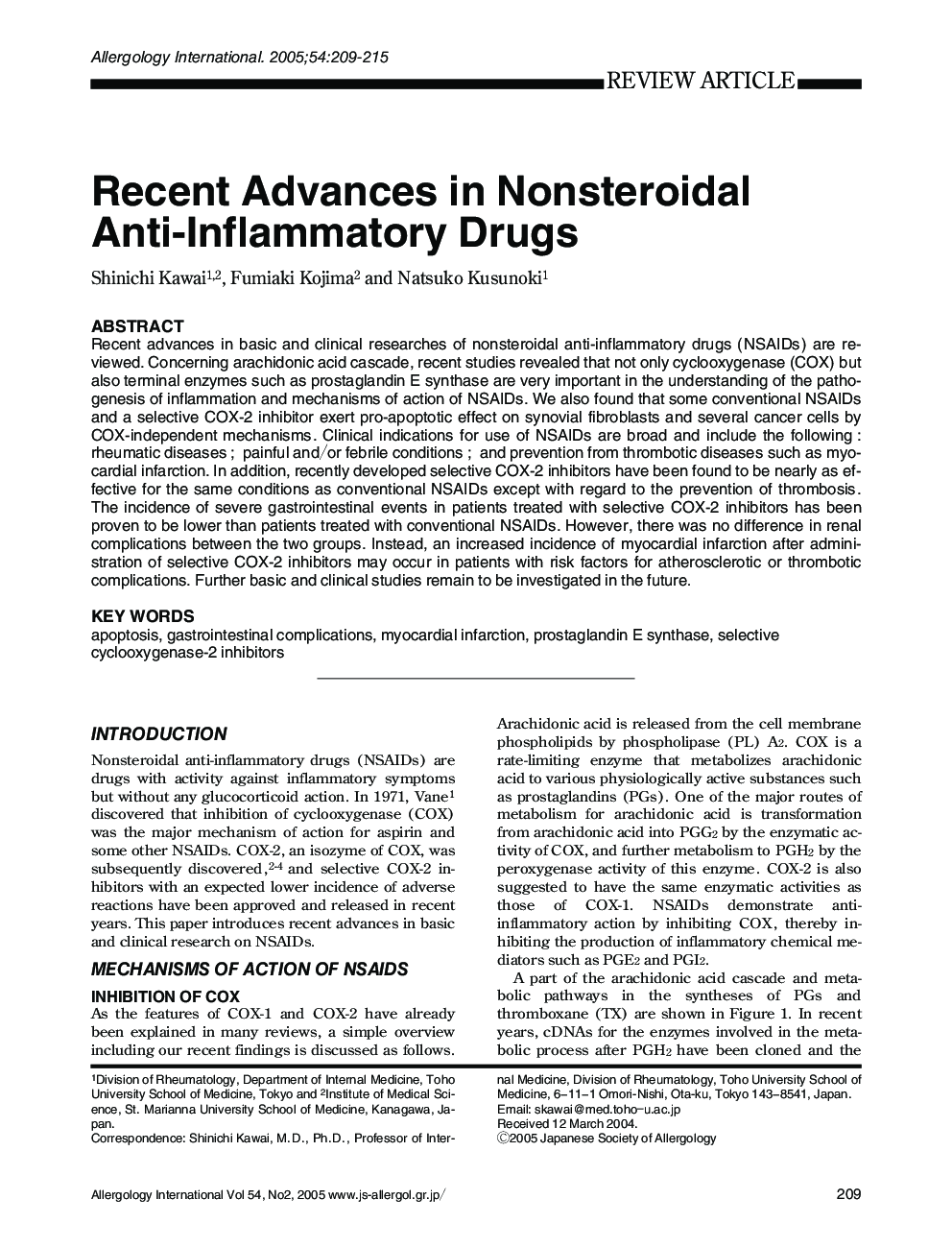| Article ID | Journal | Published Year | Pages | File Type |
|---|---|---|---|---|
| 9260933 | Allergology International | 2005 | 7 Pages |
Abstract
Recent advances in basic and clinical researches of nonsteroidal anti-inflammatory drugs (NSAIDs) are reviewed. Concerning arachidonic acid cascade, recent studies revealed that not only cyclooxygenase (COX) but also terminal enzymes such as prostaglandin E synthase are very important in the understanding of the pathogenesis of inflammation and mechanisms of action of NSAIDs. We also found that some conventional NSAIDs and a selective COX-2 inhibitor exert pro-apoptotic effect on synovial fibroblasts and several cancer cells by COX-independent mechanisms. Clinical indications for use of NSAIDs are broad and include the following : rheumatic diseases ; painful and/or febrile conditions ; and prevention from thrombotic diseases such as myocardial infarction. In addition, recently developed selective COX-2 inhibitors have been found to be nearly as effective for the same conditions as conventional NSAIDs except with regard to the prevention of thrombosis. The incidence of severe gastrointestinal events in patients treated with selective COX-2 inhibitors has been proven to be lower than patients treated with conventional NSAIDs. However, there was no difference in renal complications between the two groups. Instead, an increased incidence of myocardial infarction after administration of selective COX-2 inhibitors may occur in patients with risk factors for atherosclerotic or thrombotic complications. Further basic and clinical studies remain to be investigated in the future.
Related Topics
Health Sciences
Medicine and Dentistry
Immunology, Allergology and Rheumatology
Authors
Shinichi Kawai, Fumiaki Kojima, Natsuko Kusunoki,
